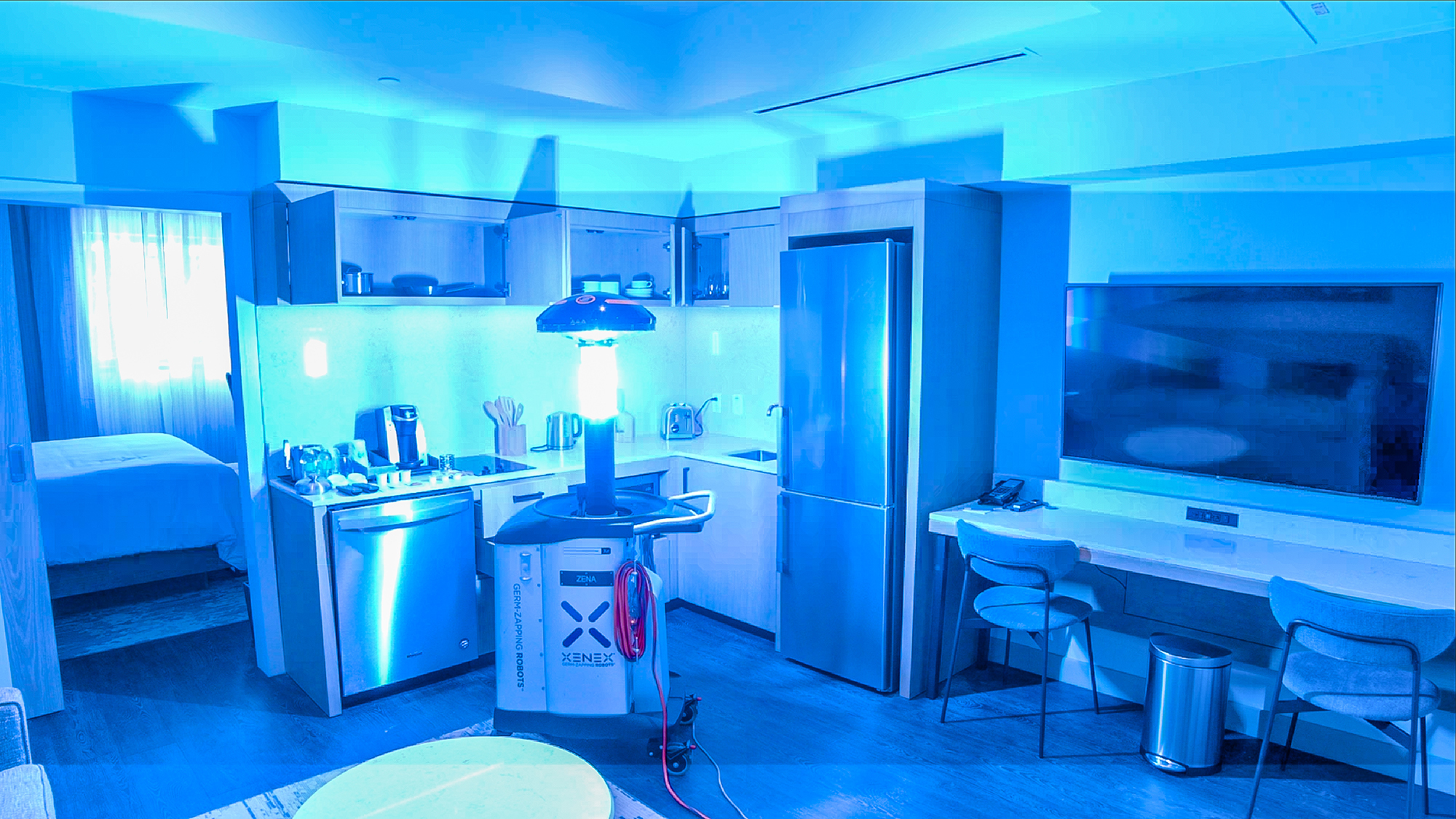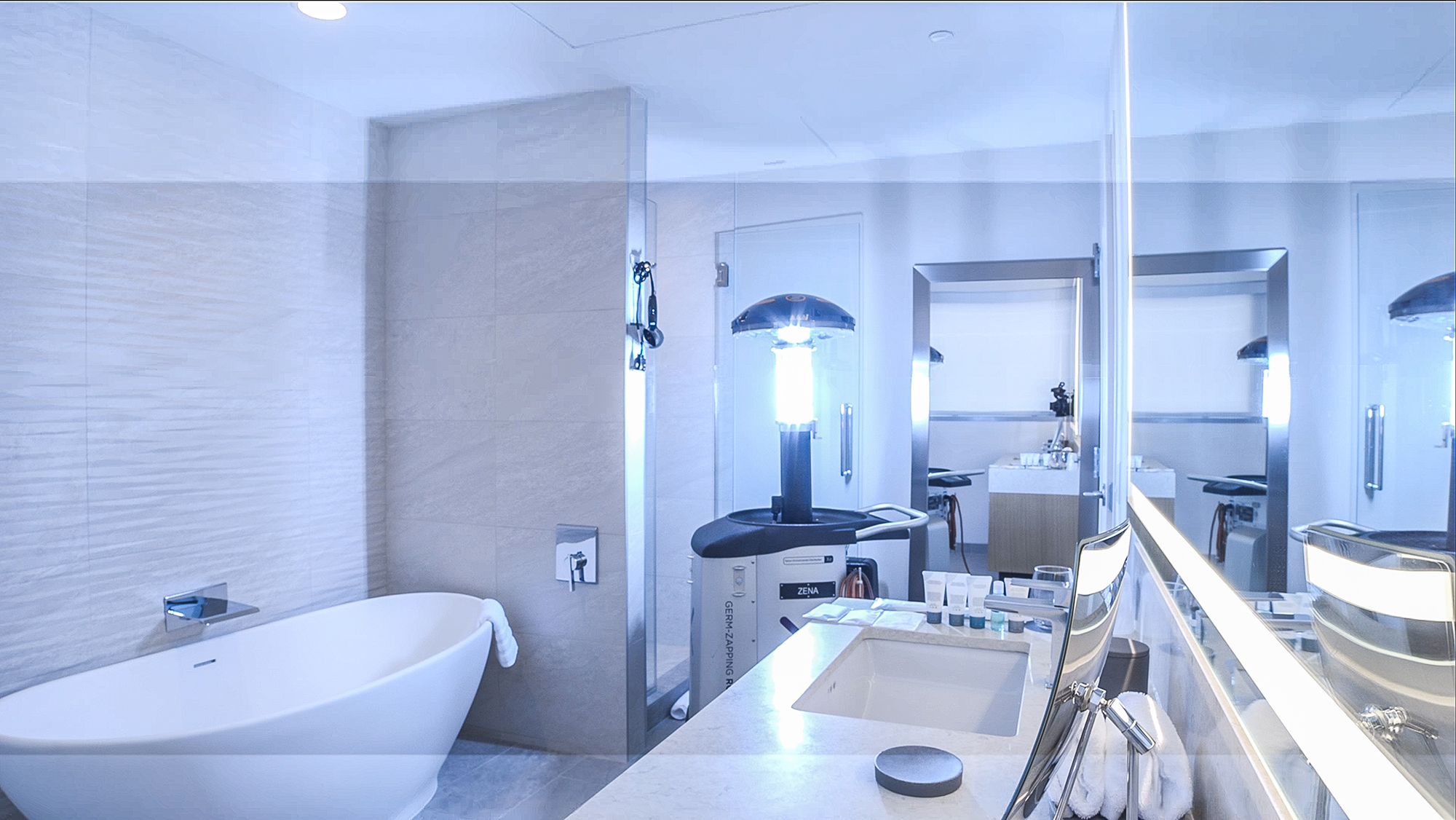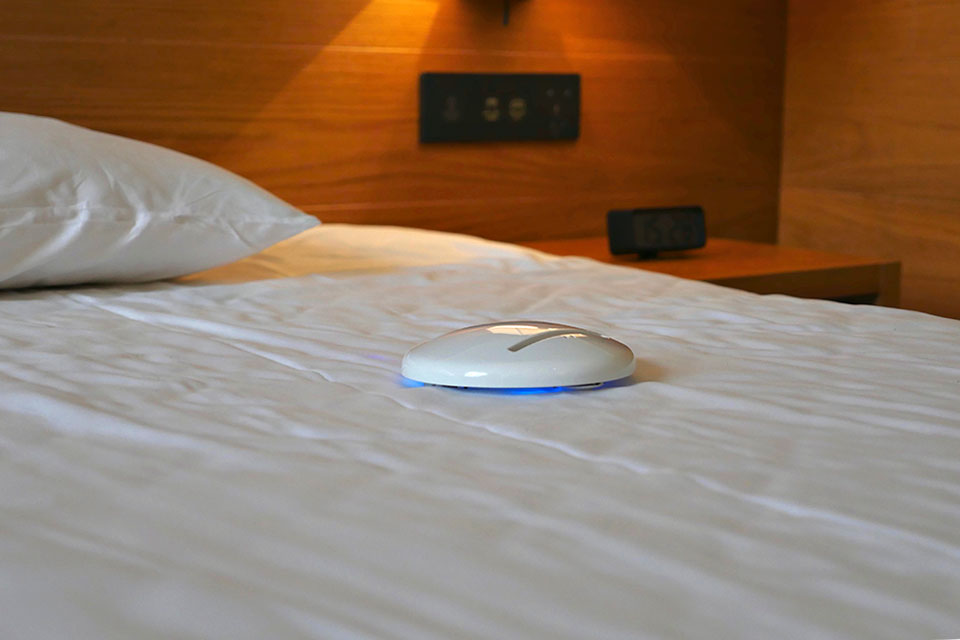The fear of catching coronavirus is going to turn travellers into germaphobes but the good news is that there are anti-viral robots out there ready to save the day. Samuel Ballard reports
When life under lockdown does finally end, and we emerge blinking from government-imposed isolation, what kind of world will we find? Whatever the situation, one thing that is certain – we are going to be much more paranoid about getting ill.
When it comes to travel, the use of communal areas is unavoidable. Whether that means sharing the same confined space on an aircraft or sleeping in a bed the night after a total stranger has used it. To help increase cleanliness, new sanitising technology is being implemented to reduce the chance of infection.
In Texas, the Westin Houston Medical Center hotel is using LightStrike Germ-Zapping robots from a company called Xenex. The hospital-grade machines emit “intense germicidal” light using pulsed xenon (a noble gas) to kill pathogens after being wheeled in by housekeeping staff. “We are taking significant proactive measures, along with following CDC guidelines, to minimise risk while also keeping day-to-day business momentum,” said Archit Sanghvi, vice-president of operations for Pearl Hospitality, the hotel’s owner and operator. “Wellness is at the core of our business and with the LightStrike technology, we saw a distinct and innovative opportunity to create a well-prepared environment for travellers within our hotel.”
“We are taking significant proactive measures, along with following CDC guidelines, to minimise risk while also keeping day-to-day business momentum,” said Archit Sanghvi, vice-president of operations for Pearl Hospitality, the hotel’s owner and operator. “Wellness is at the core of our business and with the LightStrike technology, we saw a distinct and innovative opportunity to create a well-prepared environment for travellers within our hotel.”
Dr Sarah Simmons, Xenex senior director of science, says: “Xenex is honored that The Westin Houston Medical Center has invested in LightStrike robots to provide a superior level of cleaning for its guests. Our LightStrike Germ Zapping Robots have been successfully used for years to disinfect healthcare facility rooms, and we are glad to be able to work with Pearl Hospitality to provide that same level of cleanliness to hotel guests.” The hotel is also manually cleaning surfaces with hospital-grade disinfectant. Consumable amenities (toiletries, coffee and tea), as well as items such as TV remotes sanitised and placed in sealed bags. Non-essential items such as magazines and decorative pillows have been removed.
The hotel is also manually cleaning surfaces with hospital-grade disinfectant. Consumable amenities (toiletries, coffee and tea), as well as items such as TV remotes sanitised and placed in sealed bags. Non-essential items such as magazines and decorative pillows have been removed.
In March, a group of researchers wrote a piece about the benefits of using robots to combat Covid-19. in Science Robotics. The editorial reads: “As epidemics escalate, the potential roles of robotics are becoming increasingly clear. Instead of manual disinfection, which requires workforce mobilisation and increases exposure risk to cleaning personnel, autonomous or remote-controlled disinfection robots could lead to cost-effective, fast, and effective disinfection.”

Akara Robotics is another company that has designed a robot – this time called Violet – which can be deployed on public transport, for example, and uses ultraviolet C light (the most intense UV) to kill nasties.
In Copenhagen, Brøchner Hotels has two properties with what they claim to be the “world’s first self-cleaning rooms”. Inside, walls and floors are covered in a invisible, odourless coating (like Teflon) that eliminates everything from ebola and E coli, to flu and mould.
The “CleanCoat” is applied annually, and costs about US$2,500 to apply to each room, so is quite costly. But as germaphobia takes hold in the age of coronavirus, we can expect hotels to see it as worth the investment.
For anyone unsure of the hygiene protocols at their hotel, the portable CleanseBot is something travellers can pack in their suitcase. Costing US$99, the hockey puck-size device can be put in between bed sheets and kills 99.99% of germs, bacteria and dust mites lurking there within a matter of minutes. “My wife and I came up with the idea for CleanseBot when we were on vacation,” co-creator Tom Yang tells CNN Travel. “We realised that even though we couldn’t control how well hotels cleaned their rooms, we could create a way to control our own health and safety while staying there,” he adds.
“My wife and I came up with the idea for CleanseBot when we were on vacation,” co-creator Tom Yang tells CNN Travel. “We realised that even though we couldn’t control how well hotels cleaned their rooms, we could create a way to control our own health and safety while staying there,” he adds.
The machine works in a similar way to the much larger LightStrike, using UVC lamps to eradicate germs.
“It can go remotely under the blankets and sanitise sheets, but then you can pick it up in Handheld Mode and hold it over literally any surface, toy, item, anything you want to disinfect,” says Yang.
Post-lockdown, the travel industry will also start using robots and other forms of automation to minimise human-to-human contact. At hotels, room service could be delivered by droids, for example, and check-in performed on personal smartphones, which also double as contactless room keys. These are innovations already being employed by forward-looking brands such as M Social and Hilton.
What’s coming next? Trend reports available to download HERE



